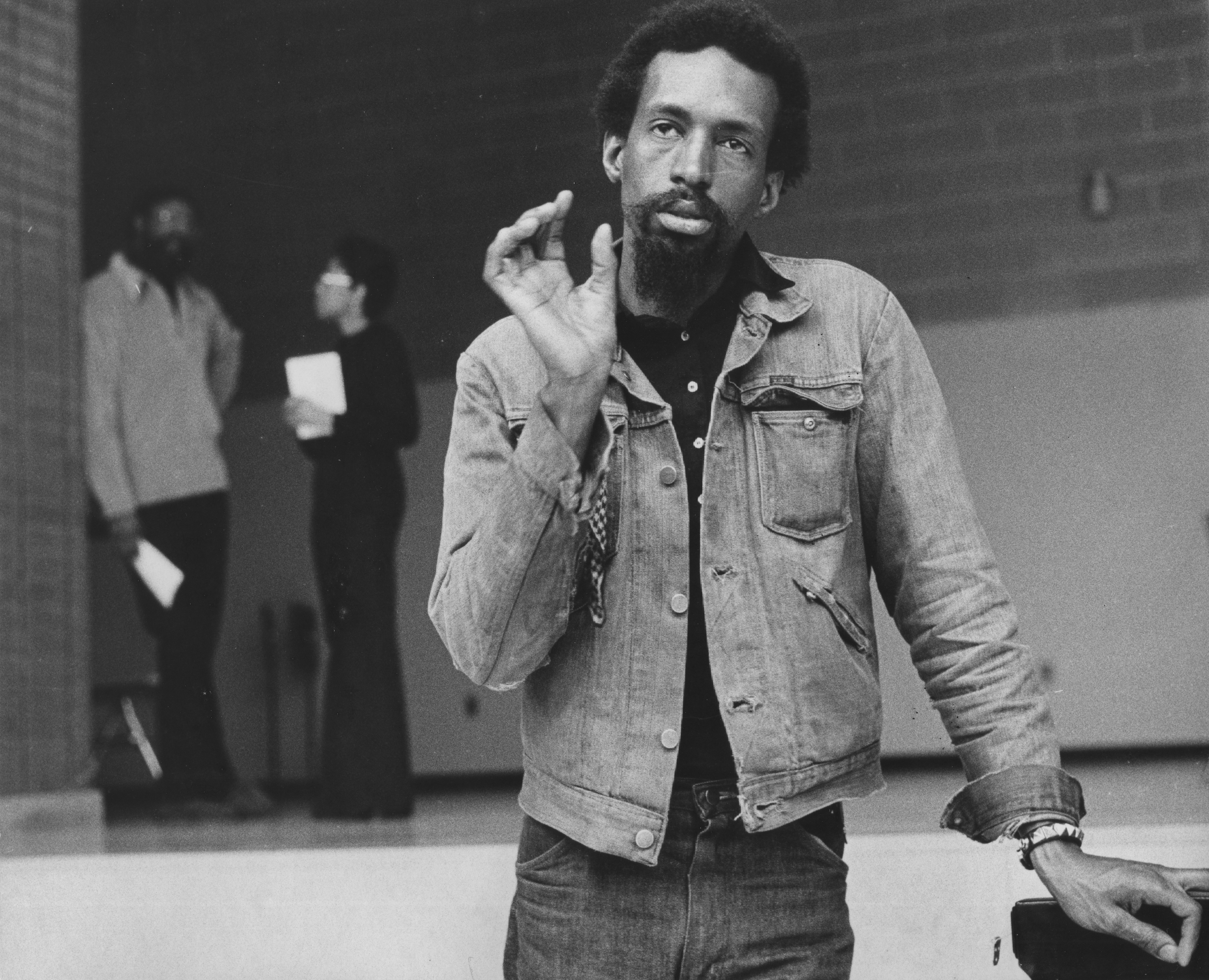Full rate : 14 euros
Reduced rate : 10 euros
Subscribers rate : 7 euros
Mathieu Kleyebe Abonnenc, the French artist, and Jean- Christophe Marti, the conductor, have conceived a programme in two evenings around the American composer and pianist Julius Eastman (1940-1990), with the pianists Wilhem Latchoumia, Haga Ratovo, Sodi Braide and Antoine Alerini, the baritone Edwin Fardini and the tenor Mathys Lagier. Since the early 2010s, and in particular thanks to the invitation of Okwui Enwezor during the Triennale “Intense Proximité” at the Palais de Tokyo in Paris (2012), Julius Eastman’s work has been rediscovered and is attracting a growing interest.
Julius Eastman
A recognised figure of the avant‑garde New-York musical scene, Julius Eastman was an African-American composer, singer, pianist, dancer and performer, who was born in 1940 in Ithaca and died in Buffalo in 1990. A singular artist in modern American music, he studied song and the piano during his childhood. He is the author of an explosive, militant, meditative, even ritualistic body of work, alluding as much to classical, popular and sacred music. His first public triumph occurred in 1970 with Eight Songs for a Mad King by Peter Maxwell Davies, an opera in which he played the sole part, that of the mad king George III. That same year, he met the Czech composer and flutist Petr Kotik with whom he founded the S.E.M. Ensemble, a chamber music group influenced by the subversive spirit of Fluxus. For this group, Julius Eastman produced Macle (1972), Joy Boy (1974) and Femenine (1974), compositions that exceed the strict framework of “minimalism” and which manifested more and more clearly his gay identity. In 1979, he composed three pieces in the N*gg*r series: Crazy N*gg*r, Evil N*gg*er and Gay Guerrilla. These works refer as much to the deadpan humour of the African-American humourist Richard Pryor (That N*gg*r is crazy, 1975), as to the deep, committed issues associated with the struggle for racial equality. In 1980, he created The Holy Presence of Joan d’Arc for 10 cellos, preceded by a Prelude for solo voice: pieces that affirmed a genuine mystical radicalness. In 1982, a rupture occurred in his life and work. Evicted from his apartment, he thus lost a large number of his manuscripts. His creation then became more and more rarefied, despite Buddha (1984), Piano 2 (1985) and finally Our Father (1989). He died in obscurity in Buffalo, aged 49. The triptyque N*gg*r series, as well as the Prelude The Holy Presence of Joan d’Arc and Our Father, will be presented on 30 September and 1 October on the stage of the Auditorium of the Bourse de Commerce — Pinault Collection.
